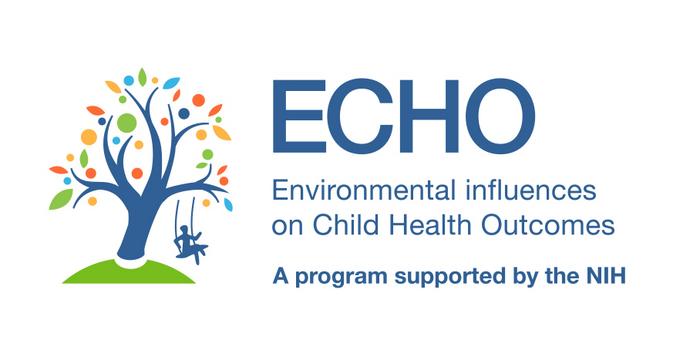The COVID-19 pandemic significantly disrupted daily life and has raised concerns about its impact on children’s well-being. A new study from the NIH Environmental influences on Child Health Outcomes Program (ECHO) sheds light on how a neighborhood’s physical and social environment influenced a child’s well-being before and during the pandemic.

Credit: Environmental influences on Child Health Outcomes (ECHO) Program
The COVID-19 pandemic significantly disrupted daily life and has raised concerns about its impact on children’s well-being. A new study from the NIH Environmental influences on Child Health Outcomes Program (ECHO) sheds light on how a neighborhood’s physical and social environment influenced a child’s well-being before and during the pandemic.
According to an analysis of ECHO Cohort data, the neighborhood environment was less likely to be associated with child well-being during the pandemic than in the pre-pandemic period. The pandemic brought unprecedented social changes, altering how people and families interacted with their neighborhoods. For example, during the pandemic, neighborhood safety was less of a concern for children who spent more time indoors at home and less time outside. Likewise, the closure of parks and playgrounds limited access to green spaces and recreation, making those factors less important to a child’s well-being at that time.
The study authors point out that the new findings align with previous research showing a link between neighborhood characteristics and child well-being. For instance, previous studies indicate that living in neighborhoods with higher poverty levels, lower educational attainment, and poorer housing conditions are associated with worse child health outcomes, including physical and mental health, cognitive development, and academic achievement.
“Neighborhood characteristics were widely known to be associated with children’s well-being. Until now, we hadn’t looked at how the COVID-19 pandemic might change their relationships,” said Xueying Zhang, PhD, of Baylor College of Medicine. “Additionally, the impacts of the pandemic may be different among children of different races.”
The study involved 1,039 children from more than 10 ECHO Cohort Study sites across the U.S., mostly between the ages of 11 and 19. These children completed a well-being questionnaire called the Patient-Reported Outcomes Measurement Information System (PROMIS) before (2019 to March 1, 2020) and during (March 1, 2020 to August 31, 2021) the pandemic The PROMIS survey measures mental and physical health as well as peer and family relationships in children.
The researchers then matched U.S. Census tract data with a child’s residential address to examine the neighborhood characteristics. They looked at factors including race, education, occupation composition of residents, house capacities, and property features. They analyzed how these factors were associated with child well-being, considering the impacts of the pandemic and differences across child racial groups.
“Our findings highlight the significance of how child race intersects with the impact of the pandemic on child well-being,” said Dr. Zhang. “Future research could examine how people respond differently to environmental impacts during the pandemic and help to address disparities.”
Dr. Zhang led this collaborative research published in Environmental Research.
###
About ECHO: Launched in 2016, the Environmental influences on Child Health Outcomes (ECHO) Program is a research program in the Office of the Director at the NIH with the mission to enhance the health of children for generations to come. ECHO investigators study the effects of a broad range of early environmental influences on child health and development. For more information, visit echochildren.org.
About the NIH: NIH, the nation’s medical research agency, includes 27 Institutes and Centers and is a component of the U.S. Department of Health and Human Services. NIH is the primary federal agency conducting and supporting basic, clinical, and translational medical research, and is investigating the causes, treatments, and cures for both common and rare diseases. For more information, visit www.nih.gov.
Journal
Environmental Research
Method of Research
Observational study
Subject of Research
People
Article Title
Associations between neighborhood characteristics and child well-being before and during the COVID-19 pandemic: A repeated cross-sectional study in the Environmental influences on Child Health Outcomes (ECHO) program
Article Publication Date
1-Jul-2024
COI Statement
The authors declare that they have no known competing financial interests or personal relationships that could have appeared to influence the work reported in this paper.



